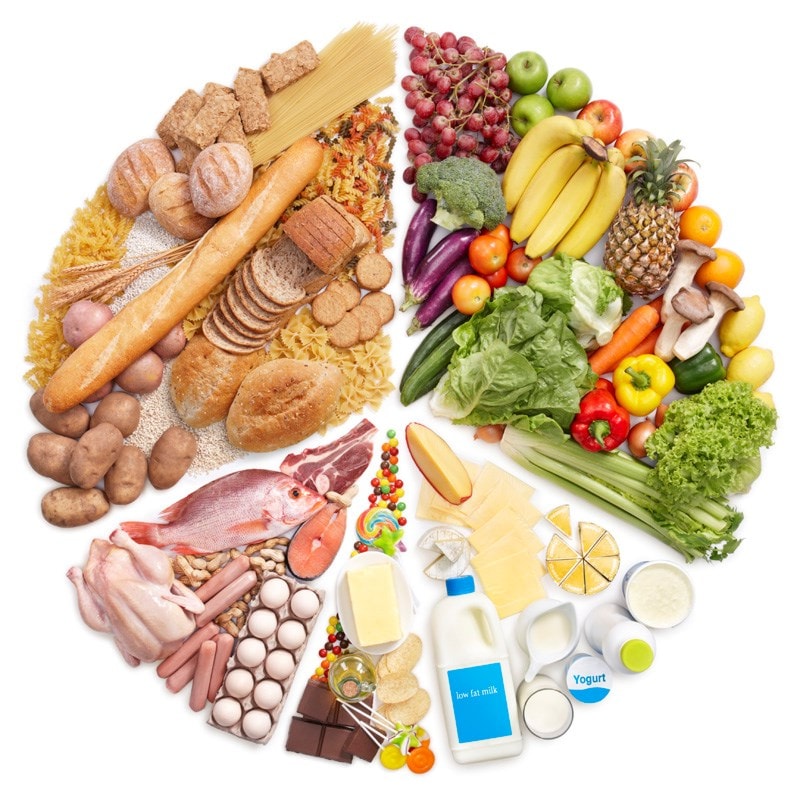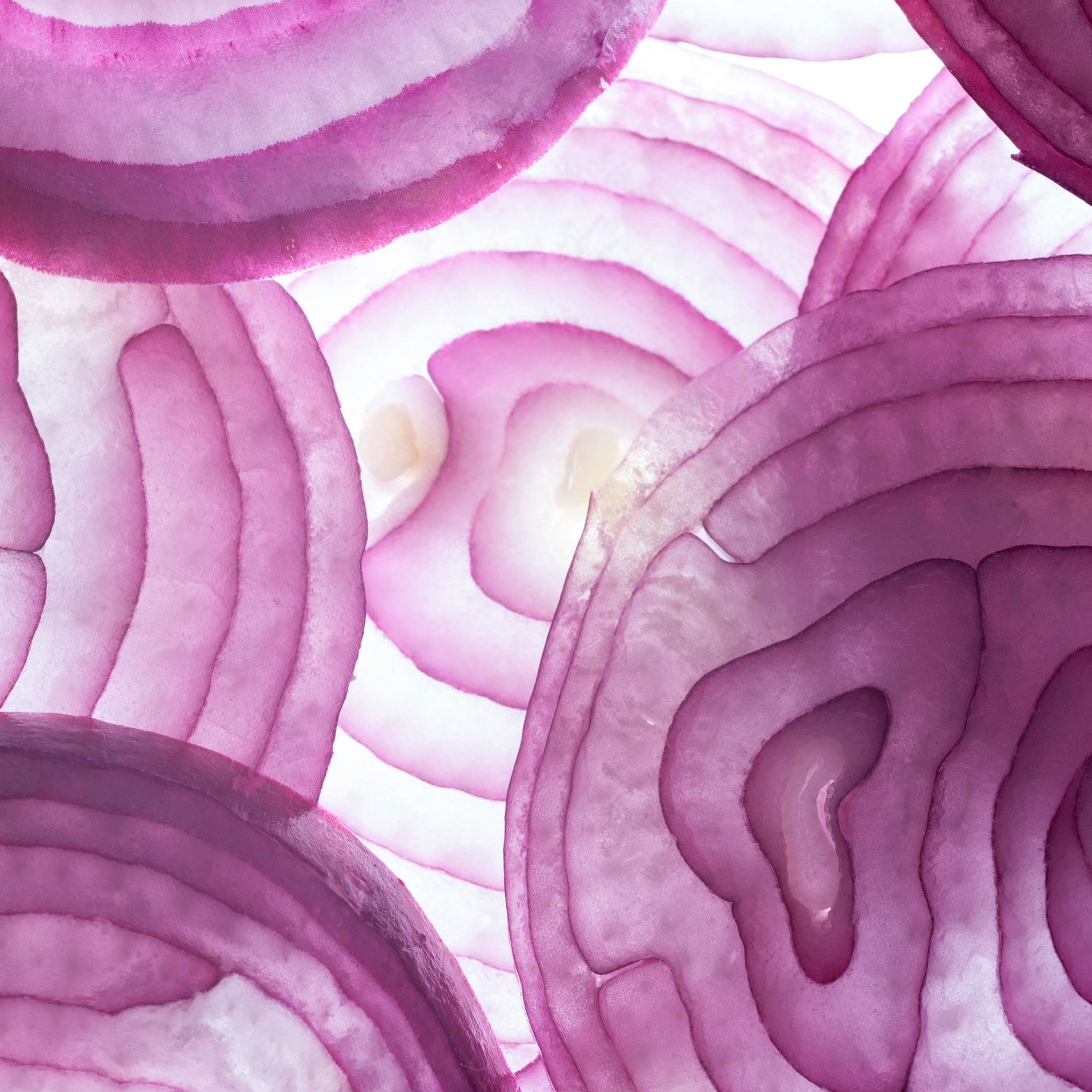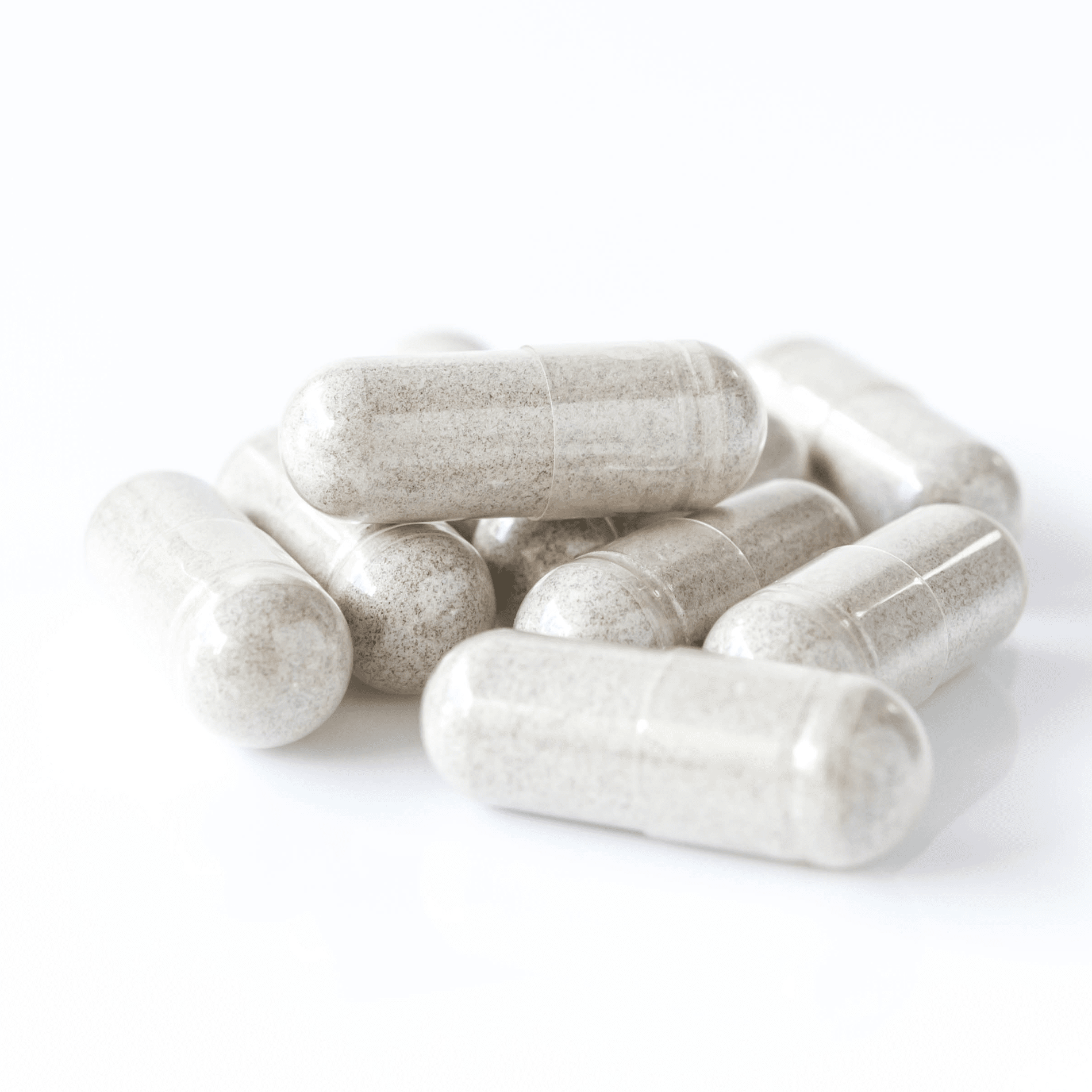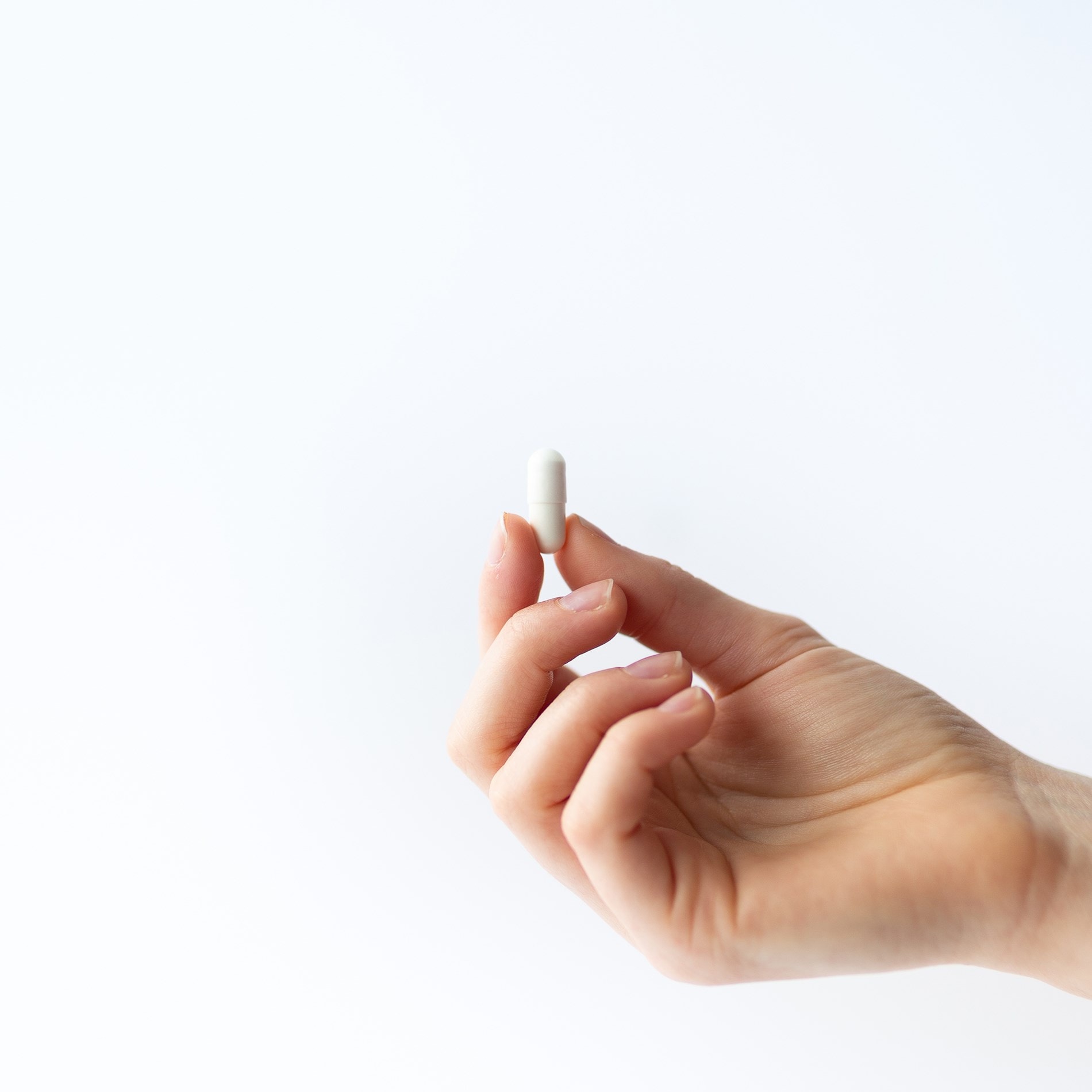Probiotics vs. Digestive Enzymes
- What are digestive enzymes?
- Where do digestive enzymes come from?
- What is the relationship between probiotics and digestive enzymes?
- What do digestive enzyme supplements help with?
- Can I obtain enzymes from my diet?
- Summary
What are digestive enzymes?
You would be challenged to try and explain digestion without describing the part that enzymes play. They're quite different to probiotics, though the two do have a close relationship. Digestive enzymes are microscopic protein molecules which have their own unique shape and are found all over our bodies. Each enzyme has an ‘active site’ designed to attract and connect with other specific molecules, like a lock and key. Just as we all have different purposes and jobs, so do digestive enzymes, but their major role is to break down different types of food molecules into their ‘building block’ components. This is so they can be easily absorbed through the gut wall and into the bloodstream for utilisation.
Digestive enzymes fall into three main groups, each of which have different ‘jobs’ and break down different types of nutrients:
- Amylases – primarily break down carbohydrates into simple sugars that the body can use for energy
- Proteases - primarily break down the proteins in food into amino acids, which the body can then utilise
- Lipases – helps the body to process and breakdown fats, oils, and triglycerides
Where do digestive enzymes come from?
Digestive enzymes are found in various locations throughout the gastrointestinal tract - even your salivary glands produce digestive enzymes - but predominantly they are produced by the pancreas, in the stomach and in the small intestine. Digestion of different nutrients occurs in different places in the body:
- Carbohydrate digestion begins in the mouth and is completed in the small intestine
- Protein digestion begins in the stomach and is completed in the small intestine
- Fat digestion begins in the mouth and is completed in the small intestine
Interestingly, where an enzyme is produced in the body can be different from where an enzyme exerts its effect. This table gives a few examples of where different digestive enzymes are produced and are active:
|
Nutrient |
Digestive Enzyme |
Area produced |
Place of action |
|---|---|---|---|
|
Carbohydrate |
Salivary amylase |
Salivary glands |
Mouth |
|
|
Lactase |
Intestinal glands |
Small intestine |
|
Protein |
Pepsin(ogen) |
Gastric glands |
Stomach |
|
|
Trypsin(ogen) |
Pancreas |
Small intestine |
|
Fat |
Lipase |
Salivary glands and pancreas |
Mouth and small intestine |
What is the relationship between probiotics and digestive enzymes?
Though they both aid the digestive process, probiotics and digestive enzymes are not the same. Digestive enzymes are molecules which assist in the breakdown of the foods we eat, whereas probiotics are living micro-organisms which live in our gut and positively affect our body/physiological processes. Both probiotics and digestive enzymes are vital to our digestive health and perform complementary functions, therefore sometimes you will see digestive enzymes and probiotics included in the same supplements.
We have many thousands of enzymes in our bodies, but there are trillions of bacteria living inside us. In fact, amazingly, they outnumber our own body cells. Certain species and strains of bacteria and yeasts have been studied and found to offer benefits for their host, and consequently these bacteria/yeasts have become known as probiotics, which means 'for life'. Probiotics are living microorganisms sometimes called ‘good bacteria’ which help to improve the bacterial balance in various places in the body; from the small and large intestine to the vagina. Look at this page for more information about how probiotics work.
Like digestive enzymes, the populations of probiotics can be altered by stress, medication, our diet, and age. Probiotics help with digestion of certain foods as they actually have the capability of producing or influencing and encouraging the production of different types of enzymes, including certain digestive enzymes. For example, species from the lactobacillus genera can help to increase the production of amylase1 and many other probiotic bacterial species including Lactobacillus casei1 actually produce enzymes such as lactase, which can help with digestion of the lactose in dairy products.
As probiotics and digestive enzymes are different things and perform different jobs, it is absolutely fine to take them together.
What do digestive enzyme supplements help with?
In addition to our own endogenous production of digestive enzymes, enzymes can also be extracted from foods and taken as supplements. Digestive enzyme supplements can be helpful for those struggling with uncomfortable symptoms such as acid reflux, constipation, nausea, diarrhoea, indigestion and food sensitivities, IBS, gas, bloating and other complications. That being said, it must be noted that diet and lifestyle are equally important when trying to support digestion. It’s not only about how we digest our food, it’s what, how, and where we eat which can affect the digestive process and the production of enzymes too.
A growing problem in our modern lifestyle is that for many people, eating on the move, in front of the TV, or at a desk, is a common occurrence. As a result, they can bypass crucial stages of their digestive process:
- The cephalic stage - this is the stage where we think about, smell, see and anticipate food. Even before food enters our mouths, thinking about food gets the saliva in our mouth going and digestive enzymes ready, so that our body is ready for it. Even before food enters our body, digestion has begun!
- Chewing - the action of chewing stimulates digestive enzyme production. As you chew food it mixes with saliva which contains the digestive enzyme, amylase, that begins the breakdown of carbohydrates.

But even when good digestive practices are followed, there are still other situations when our enzyme production might be compromised.
A decrease in enzyme production can occur for numerous reasons including genetic predisposition, pancreatic insufficiency (e.g. it isn’t producing enough enzymes); diabetes, illness, auto-immune conditions, excessive exercise, and ageing. As we age, there are changes which occur to our bodies and organs. This includes our pancreas and a decrease in the number of digestive enzymes the body produces. This is why many will comment that they have managed to eat certain foods their whole lives without complaint, and all of a sudden they find themselves having uncomfortable symptoms.
Another factor affecting enzyme production is intestinal permeability (also known as leaky gut). This can result in low digestive enzyme production due to damage to the brush border where many digestive enzymes are secreted. A brush border is a protective layer of hair-like protrusions, called microvilli, which are found on the surface of certain epithelial tissues where absorption takes place, such as the intestinal lining.
Digestive enzymes supplements are sometimes used by those on weight-loss programmes. A review2 of the effects of digestive enzymes on obesity concluded that amylase inhibition could modulate our gastrointestinal tract function, “strengthening satiety and decreasing food intake”. Despite this encouraging research, more research needs to be done before digestive enzyme supplements are considered to be a proven weight control solution; however, improving digestion is always useful in weight management.
There is some concern that the body can become dependent on digestive enzyme supplements, however, there is no research to suggest that this is the case. The only scenario where this would happen would be in cases where the body doesn’t produce a specific enzyme and the supplement is required for digestion. This is seen in conditions including Crohn's or coeliac disease, acute or chronic pancreatitis, cystic fibrosis, cancer of the pancreas, and gallbladder removal. Overall, however, it is best to try and use them as a short-term solution while you take steps to naturally improve digestions and boost your production of enzymes.
Can I obtain enzymes from my diet?
As the food we eat is what fuels us, it seems logical to first look at what you are putting into your body before looking at a supplement. Certain foods contain natural enzymes to aid digestion, including:
- Pineapple, contains the enzyme bromelaine (a protease) which breaks down protein.
- Mangoes and Bananas, contain the enzyme amylase, which breaks down carbs from starch.
- Papaya, contains the enzyme papain (a protease) that help to digest proteins
- Kiwifruit, contains the enzyme actinidain, which helps digest proteins.
- Ginger, contains the enzyme zingibain (a protease) which can help to boost the body’s own production of digestive enzymes.
- Kefir, is a fermented milk drink which contains numerous digestive enzymes and probiotics. Kefir can be made using cows milk or dairy alternatives and each batch will contain a unique variety of enzymes.
- Sauerkraut, is a type of fermented cabbage which is rich in many digestive enzymes.
- Kimchi, is a part of Korean cuisine and is made from fermented vegetables. It’s fermented with bacteria of the Bacillus species, and contains enzymes such as proteases, lipases and amylases.

Top tip: High heat can destroy natural enzymes in food, so make sure you incorporate raw/uncooked elements into your diet.
Some of the foods which are listed, while being good sources of various digestive enzymes, may not be suitable for everyone. Therefore it is important to check contraindications alongside certain medications, medical conditions and, of course, allergies/intolerances you may have.
Bitter foods are also thought to stimulate the production of digestive enzymes. There is not a lot of research to support this, but anecdotally bitter foods feature in the diets of many different cultures where they were used as digestive tonics to improve digestion before or after a large meal. Bitter foods are a great source of both soluble and insoluble fibre, which stimulates the growth of healthy gut bacteria3. While there are numerous 'bitters' supplements and tonics on the market, going for whole foods is always the best choice. Bitter foods include; cruciferous vegetables, apple cider vinegar, ginger, dandelion and leafy greens.
Summary
- Digestive enzymes break down different macronutrients in our food (such as: carbohydrates, proteins and fats)
- There are many ways in which we can increase our levels of digestive enzymes, including: eating raw foods, fermented foods and taking probiotics.
- Digestive enzyme supplementation may not be advisable or necessary for everyone on an ongoing basis
- Probiotics, on the other hand, are very safe for ongoing use, as there is no risk of addiction or dependency when supplementing them. Therefore taking probiotics, or perhaps certain herbal preparations such as bitters, that are known to naturally stimulate the production of digestive enzymes, may be the better approach for long-term use.
If you enjoyed this article then take a look at these related articles:
Our Five Favourite Fermented Foods
Probiotics for Digestive Health
Probiotics and Trimethylaminuria (TMAU)
Health professionals can head over to our Professionals Site to read the following articles:
Can probiotics cause addiction or dependency?
Could probiotics help with acid reflux?
References:
- Juers DH1, Matthews BW,Huber RE (2012), LacZ β-galactosidase: structure and function of an enzyme of historical and molecular biological importance. Protein Sci. 2012 Dec;21(12):1792-807. doi: 10.1002/pro.2165. Epub 2012 Nov 13
- Tucci, S., Boyland, E. and Halford, J. (2010). The role of lipid and carbohydrate digestive enzyme inhibitors in the management of obesity: a review of current and emerging therapeutic agents. Diabetes, Metabolic Syndrome and Obesity: Targets and Therapy, p.125.
- Zou, J., Chassaing, B., Singh, V., Pellizzon, M., Ricci, M., Fythe, M., Kumar, M. and Gewirtz, A. (2017). Fiber-Mediated Nourishment of Gut Microbiota Protects against Diet-Induced Obesity by Restoring IL-22-Mediated Colonic Health. Cell Host & Microbe, 23(1), pp.41-53.e4.
Popular Articles
View all Probiotics articles-
Prebiotics20 Jul 2023


